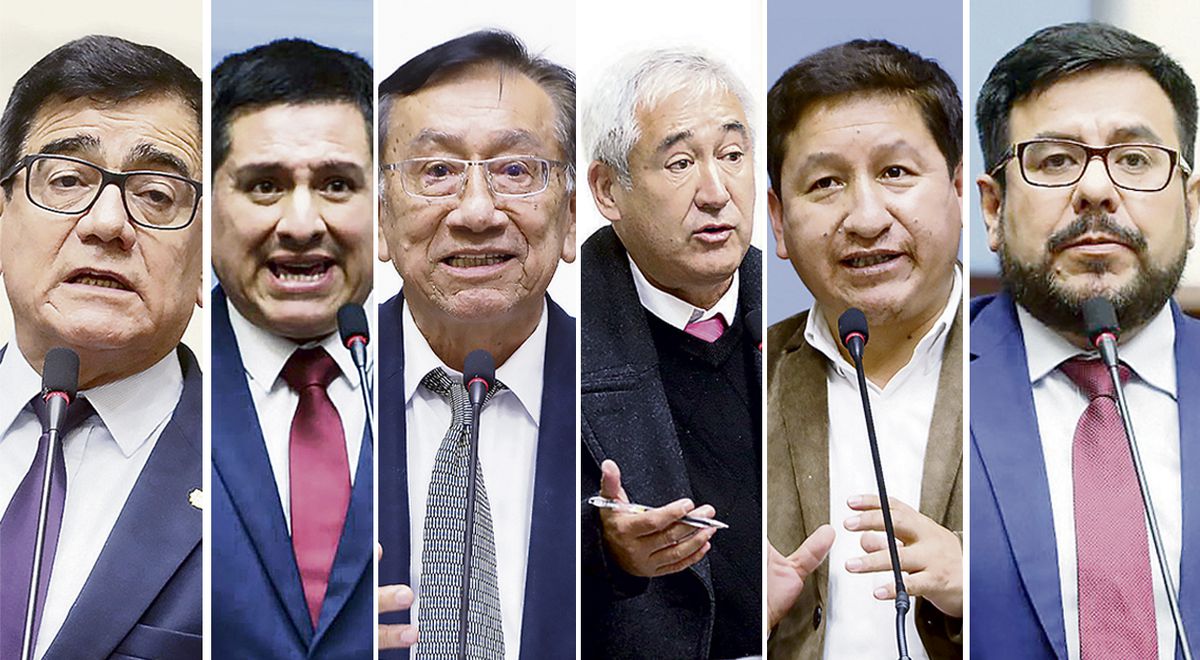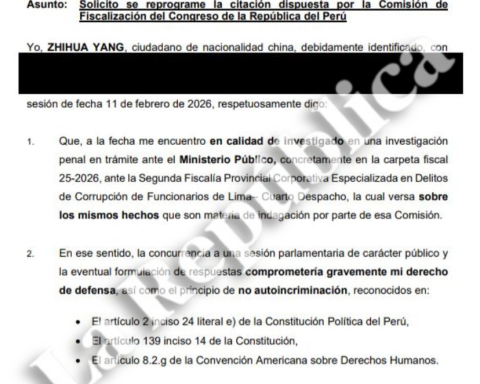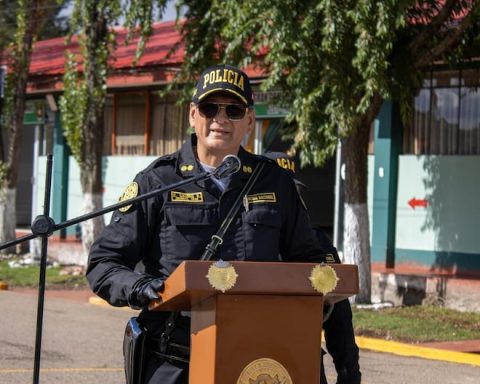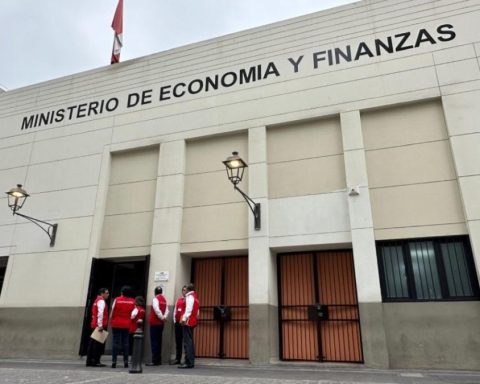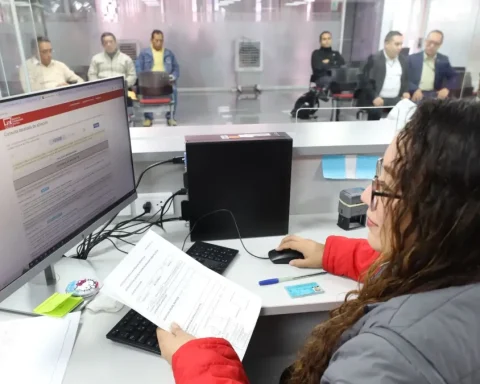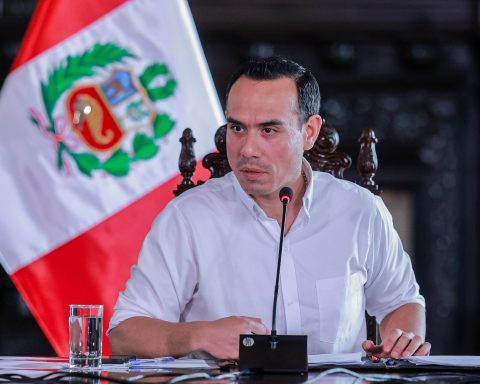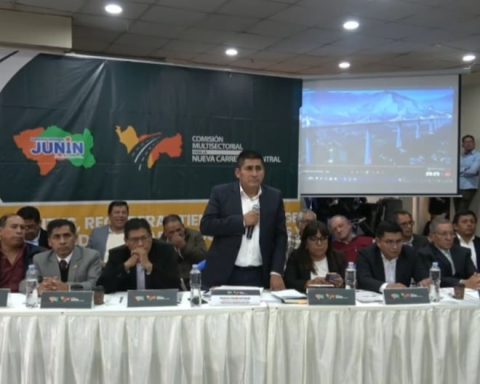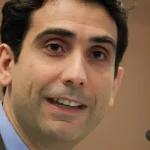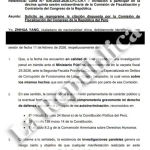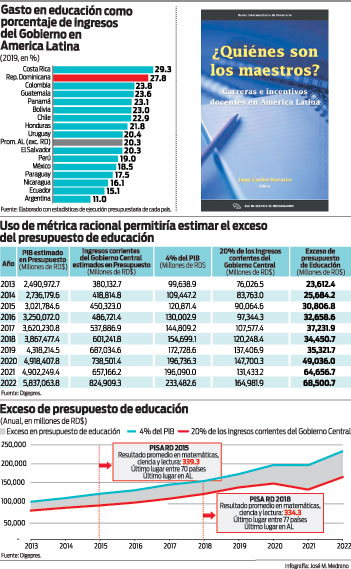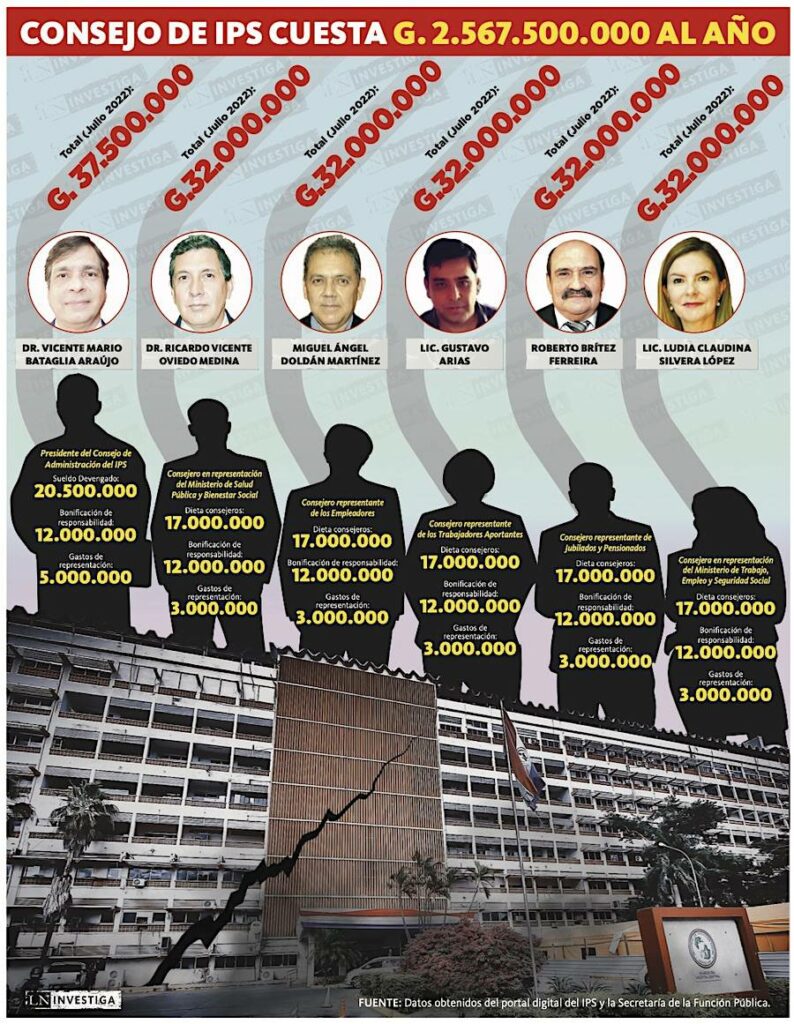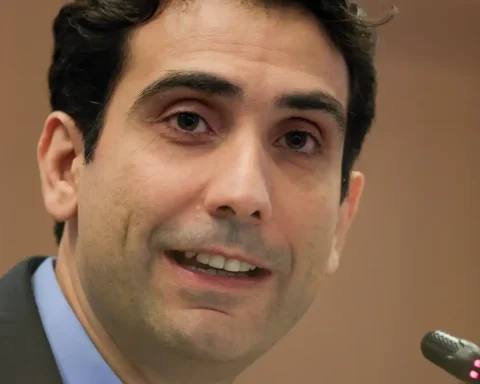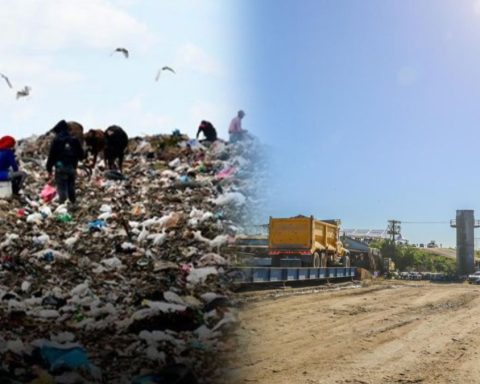With the surprising participation of six candidates, the Congress of the Republic today elects its new president, who will complete the annual period of sessions 2022-2023 after the censorship of Lady Camones (APP).
The nomination of José Elías (Podemos Perú/Somos Perú), Guido Bellido (Free Peru), Luis Aragón (Popular Action/Teachers’ Block), José Balcázar (Perú Bicentenario), José Williams (Avanza País) and Carlos Zeballos (Integrity and Development ) evidences the presence of an opposition and also the division of the ruling party.
APP. His bench would support the candidacy of José Williams. Photo: Gerardo Marin/The Republic
In addition, the number of proposals suggests that the highest position in Congress could be settled in a second round, except for last-minute alliances that are usually attempted until the final minute. The special session to elect the new president will begin at 10:00 am
Within hours of the electoral contest in the Legislative, some support positions have already been expressed. The Popular Force bench announced that it will support the candidacy of José Williams for the presidency of the Board of Directors of Parliament.
popular force. He ruled in favor of José Williams. Photo: Antonio Melgarejo/The Republic
“This decision is made, once again, in compliance with the commitment to prevent the Legislative Power from falling into the hands of the Government of the day, the same one that has not shown any capacity to meet the needs of millions of Peruvians,” he said in a statement. a statement the fujimorista bench.
In Popular Renovation, congresswoman Jackeline Jáuregui maintained that her parliamentary group will also support José Williams.
“We believe that he is the ideal person to chair the Board of Directors. Williams will be chosen because Fuerza Popular, Avanza País, Alianza para el Progreso y Renovación Popular, the four of us, are going to support this candidacy,” Jáuregui said.
And in the Popular Action bench, legislator Jorge Flores said that his group has not only talked with those of the Magisterial Bloc, but with all the benches that presented candidates, in order to reach consensus and agreements. Finally, they did not achieve their objective of presenting Luis Aragón as the representative of a central bloc.
“We are sure that we are going to go to the second round, and that is where Luis Aragón, from Cusco like Valentín Paniagua, will be consolidated,” Flores said.
For congressman Luis Picón (ex-APP, not grouped), the excessive number of candidates has forced the benches to continue looking for alliances.
“Nothing is said. It is very possible that we will go to a second round. What is sought is an independent president, who has no affinities with the Executive”, commented Luis Picón.
Raise your low
For his part, the political scientist Alonso Cárdenas, professor of Political Science at the Antonio Ruiz de Montoya University, points out that it will be very difficult for any of the candidates who wins the presidency of Congress to overcome the low popularity that Parliament has.
“According to international surveys, such as the Latinobarómetro or the AmericasBarometer, the Peruvian Congress is ranked as the one with the worst approval rating on the continent, and in that scenario, a president of the Legislative Assembly with an almost divine personality would be needed to lift the extremely poor levels of Congress. . There would have to be a root change and I don’t think that will happen in the medium term”, he refers.
He maintains that the first thing that the person elected should do is apologize to the citizenry for “the contempt of the congressmen that the population suffers, for their salaries and travel expenses, for trips abroad without justification, for having filled the Congress with people without no type of profile, as Lady Camones admitted in the audio with Acuña.”
He points out that the so-called “confrontation” with the Executive is only a narrative issue, because deep down, in many cases, it plays on the wall with the Legislative; for example, he did it in the case of Sunedu, the transport reform, the prohibition of the gender approach in school textbooks, among other things.
“There is a complicity in the substantive issues between Congress and the Executive Branch. The narrative is confrontational, but on specific issues there is complicity in some cases. For example, Congress repeatedly refused to censure Minister Juan Silva. He was complicit in his stay and his activities. And now we are going to see what happens with Minister Alvarado”, he warns.
Cárdenas indicates that if Congress really wanted to confront, it would have censored at least the premier or even the president of the Republic.
“A few days ago the premier went to Parliament, where he walked around and invited them to censor him, and nothing happened”, noting that this shows his interest in staying.
Without the necessary profile
The political scientist Alonso Cárdenas adds that although none of the candidates has the profile that is needed, this is mainly due to their origin; that is to say, by the political parties that they integrate and by the exacerbated turncoat in this Congress.
“The benches are divided, there is no respect for the voter. For example, Congressman Óscar Zea was elected with 80% of the votes with a leftist agenda, but later he switched to Podemos. And respect for his voters? Any. The same thing happens in other cases. There is no consideration for what is said in the campaign because the political parties are weak and improvised” he warns.
Likewise, Cárdenas considers it very difficult for Congress to pass a rule to advance the elections because he would have to leave, and they see it in his medium-term interest.
reactions
José Cevasco, Senior Congressional Officer
“We have thirteen benches in Parliament […]. As there is a greater atomization of benches and a greater fragmentation, it is evident that this is reflected in this election process. A second round is possible.”
Darwin Espinoza, congressman Popular Action
“It is necessary that we have a person who is a concertor. We need a transparent person, open to dialogue, but who above all builds bridges to the different political forces in Parliament”.
Carlos Anderson, ungrouped congressman
“The congressional regulations are undemocratic because they limit those who are not grouped like me to elect and be elected. If it were the election for whoever exercises the natural leadership in Congress, these 6 candidates would not be there.”
Directive. It has Martha Moyano in the vice presidency. Photo: diffusion
It will be decided in the second round
Focus: by Fernando Tuesta, political scientist
The issue is who has a chance. There is such dispersion in Congress due to the number of benches that exist, and the lack of cohesion in many of them, that uncertainty is generated. But I don’t think anyone will win in the first round.
It is very difficult that, in this case, two members of a single bench are present on the Board of Directors, which is the case of Podemos, so José Elías does not think it will happen. Nor do I see a possibility in Guido Bellido, from Peru Libre, who represents the left sector; and José Balcázar, from Perú Bicentenario, has little support; the same as Carlos Zeballos, of Integrity and Development.
Luis Aragón, from Acción Popular, offers less resistance, but José Williams, from Avanza País, has an advantage to be able to get better in the first round and go to the second, because he has the support of his bench, Fuerza Popular and Renovación Popular .
The issue is who competes with in the second round. If he passes Bellido, it is very likely that Williams will beat him by a wide margin. Aragón would present less resistance in a hypothetical second round.
Currently, there are three members of the Board of Directors already elected who will continue in their positions, and who belong to Fuerza Popular, Podemos and Renovación Popular. Until now, it is a Board of Directors more to the right, and with Williams this would become more pronounced, and perhaps it would be of greater opposition to the Government.
